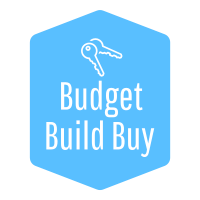The 7 Best Budgeting Tips
Just do it, a journey of a thousand miles begins with a single step. When looking at your finances and your long term goals (goals 12-24 months or more away) the road seems long and impossible. But taking the first single step and initial action brings you that much closer to your ultimate goal. To build financial wealth you must take action and certain proven steps. Step 1 is usually the hardest. However, the first step will take you to your second step.
Track your spending
Step 1 of the 7 best budgeting tips starts by tracking your spending. Accomplish this by sitting down and taking off all of the blinders to your current financial situation. This is scary. Trust me, I know.
When I started step 1 I had just moved to a new country after living overseas and ending a business relationship with a toxic business partner. I was forced to start over, move my family to the US from Colombia and move into my sisters basement.
Think strategically about your revenue stream
Think strategically about your revenue stream. Usually you will need multiple sources of income and or multi people contributing to the revenue. I love to meet families which work together. They each work and contribute financially to the goals of the home.
Think of your skills and develop ideas around how you can be of service to others. What is obvious to you is amazing to others.
Budget towards a goal
Goals are important but realistic goals are even better. Even better are detailed goals accompanied by a plan to action. Your goals are going to add a purpose to your budget. If you have a spouse or partner, work with them on your budget. Everyone has to be committed to your goals and budget for it to be a success.
Budgeting towards a goal is the 3rd step in the 7 best budgeting tips checklist.
Zero based budget
I like the zero based budget approach it connects well with being intentional in everything you do. I did not invent this but i’ve reviewed it and it makes sense. It is part of the top 7 best budgeting tips. When you have a goal for each dollar you avoid your dollars being spent on things you don’t need.
My add to the zero budget strategy is to round up on expenses and down on revenue. Why? This will give you a guaranteed buffer for those unexpected expenses and honestly to treat yourself every now and then.
Let’s be honest it’s never easy to stick to a budget 100% of the time. You can budget and plan as best you can but things will always come up. We will minimize this as much as possible but the buffer will give you some breathing room.
Budget needs vs. Budget wants
You need a place to live, you need food, depending where you live you need a vehicle which needs insurance which needs gas to move around. Some needs are easy to define. Within food needs you want name brand foods but you really just need healthy food.
Try to avoid the easy fix of fast food not only for the unhealthy nature of the food but also the cost. Prepared food will save you money. Search for coupons and buy what you need, not always what you want. And before you go grocery shopping make a list of meals you will prepare for the next 5-10 days. It will make meal planning have a purpose and will ultimately save you money.
Analyze your budget
What is currently a need and what is currently a want. Do you need the premium cable tv package or can you live with less? Find places you can trim using the needs vs wants analysis. A want you have to think long and hard to keep and realize you need to justify it. Can you find a less expensive yet similar alternative?
Budget is set, time to put the plan into action. I attached a simple spreadsheet you can use but feel free to use your own. I check my budget almost on a daily basis. I like to know where I was and where i´m going. And as I move money around I want to document that movement. I recommend you do the same. Each dollar which goes out should be accounted for. Don’t let it accumulate days or weeks. That’s how budgets get out of whack.
Be accountable to yourself and your family
Your budget should be the first thing you think about before making a purchase. Be honest with yourself. If you spent money which was not in your budget document it. Don’t ignore it and do better. Always do better. We will fall at times but we can always get right back up. Being accountable is the final step in our list of the top 7 best budgeting tips.
After 2 years of budgeting I achieved my first goal of purchasing a home. I used the 7 best budgeting tips sheet and tools i’m giving you today to achieve those goals.



2 Responses
Comments are closed.